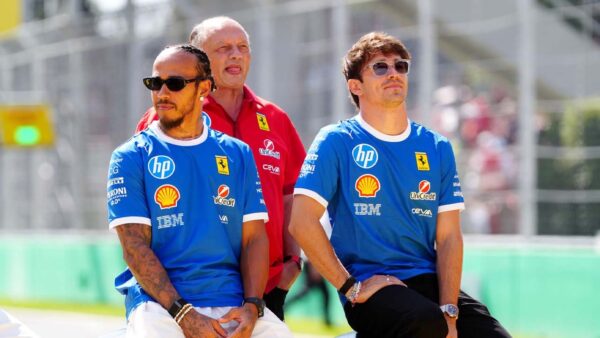Kenley Jansen EXPOSES the dark side of MLB’s pitch clock
Pitcher Kenley Jansen of the Red Sox spoke open about how the MLB's new pitch clock restrictions have changed his game.

Kenley Jansen ( Image via CBS Sports )
🔍 Explore this post with:
There’s no denying that the new pitch clock rules have brought about a revolution in Major League Baseball (MLB). With concerns over the increasing duration of games and its impact on TV viewership and financial factors, the league introduced a pitch clock rule aimed at trimming excess minutes.
This rule, which mandates that pitchers have 15 seconds between pitches with bases empty and an additional five seconds if runners are on base, has indeed led to more efficient games, with an average reduction of approximately 30 minutes per game in the 2023 season.
However, Boston Red Sox closer Kenley Jansen believes that the consequences of the pitch clock rule may extend far beyond its apparent benefits.
During a recent appearance on Audacy’s “Baseball Isn’t Boring” podcast, Jansen spoke candidly about how the pitch clock rule has thrown a curveball at pitchers, necessitating quick adjustments to a faster game tempo.
For Jansen, who used to take time to reset in later innings to prevent the game from “speeding up” on him, the new rule presents challenges. Learning to adjust and recalibrate pitches within the confines of the pitch clock has become a mental and physical task, with potential consequences for both performance and player well-being.
Game-changer or career-killer? Kenley Jansen’s warning on MLB’s pitch clock

Kenley Jansen emphasizes that the impact of the pitch clock rule extends beyond the game itself. He raises concerns about the toll it can take on pitchers, who risk getting worn out and potentially suffering career-threatening injuries.
Given the rigorous demands of the MLB season and the high-stress game environments, Jansen’s critique may resonate with other pitchers who have experienced the expedited pitching times and fear the potential consequences.
While the pitch clock rule was initially rolled out in the minors, its implementation in the MLB requires careful consideration, feedback from players, and a willingness to adjust the rules to safeguard player welfare, according to fansided.
Jansen’s candid assessment of the MLB’s pitch clock rule sheds light on the challenges faced by pitchers in adapting to a faster game tempo. While the rule has undoubtedly led to more efficient games, Jansen’s concerns about the impact on pitchers’ careers and well-being warrant attention.
As players strive for a better game, it is crucial that the league remains open to feedback and considers necessary adjustments to ensure the long-term success and safety of all those involved in America’s pastime.
In case you missed it:







